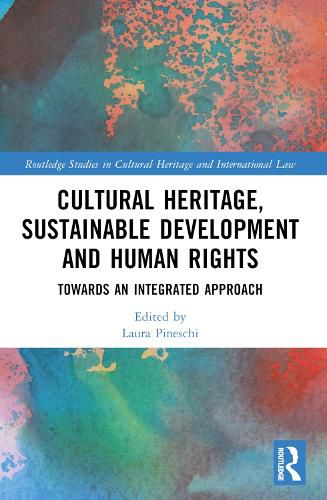Readings Newsletter
Become a Readings Member to make your shopping experience even easier.
Sign in or sign up for free!
You’re not far away from qualifying for FREE standard shipping within Australia
You’ve qualified for FREE standard shipping within Australia
The cart is loading…






The importance of cultural heritage - in both its tangible and intangible forms - to sustainable development and its economic, social and environmental components is increasingly evident in the recent practice of intergovernmental and non-governmental organizations at the universal and regional level.
Due consideration for the integration of the cultural dimension in the implementation of Agenda 2030 has begun to grow in various international fora, including initiatives to emphasize the role and contribution of tangible and intangible heritage as drivers and enablers of sustainable development. It has also been recognized that the inherent links between cultural heritage and sustainable development cannot be correctly addressed without taking into account their various implications for the effective enjoyment of all human rights, including cultural rights.
This book offers a thorough academic investigation on the importance of cultural heritage to sustainable development and cultural rights from an international law perspective. Providing an in-depth review of the possible intersections between cultural heritage, sustainable development and cultural rights and the limits of the current legal and institutional framework, it will be of interest to researchers and scholars of international law, cultural heritage law, environmental law and human rights law.
$9.00 standard shipping within Australia
FREE standard shipping within Australia for orders over $100.00
Express & International shipping calculated at checkout
The importance of cultural heritage - in both its tangible and intangible forms - to sustainable development and its economic, social and environmental components is increasingly evident in the recent practice of intergovernmental and non-governmental organizations at the universal and regional level.
Due consideration for the integration of the cultural dimension in the implementation of Agenda 2030 has begun to grow in various international fora, including initiatives to emphasize the role and contribution of tangible and intangible heritage as drivers and enablers of sustainable development. It has also been recognized that the inherent links between cultural heritage and sustainable development cannot be correctly addressed without taking into account their various implications for the effective enjoyment of all human rights, including cultural rights.
This book offers a thorough academic investigation on the importance of cultural heritage to sustainable development and cultural rights from an international law perspective. Providing an in-depth review of the possible intersections between cultural heritage, sustainable development and cultural rights and the limits of the current legal and institutional framework, it will be of interest to researchers and scholars of international law, cultural heritage law, environmental law and human rights law.